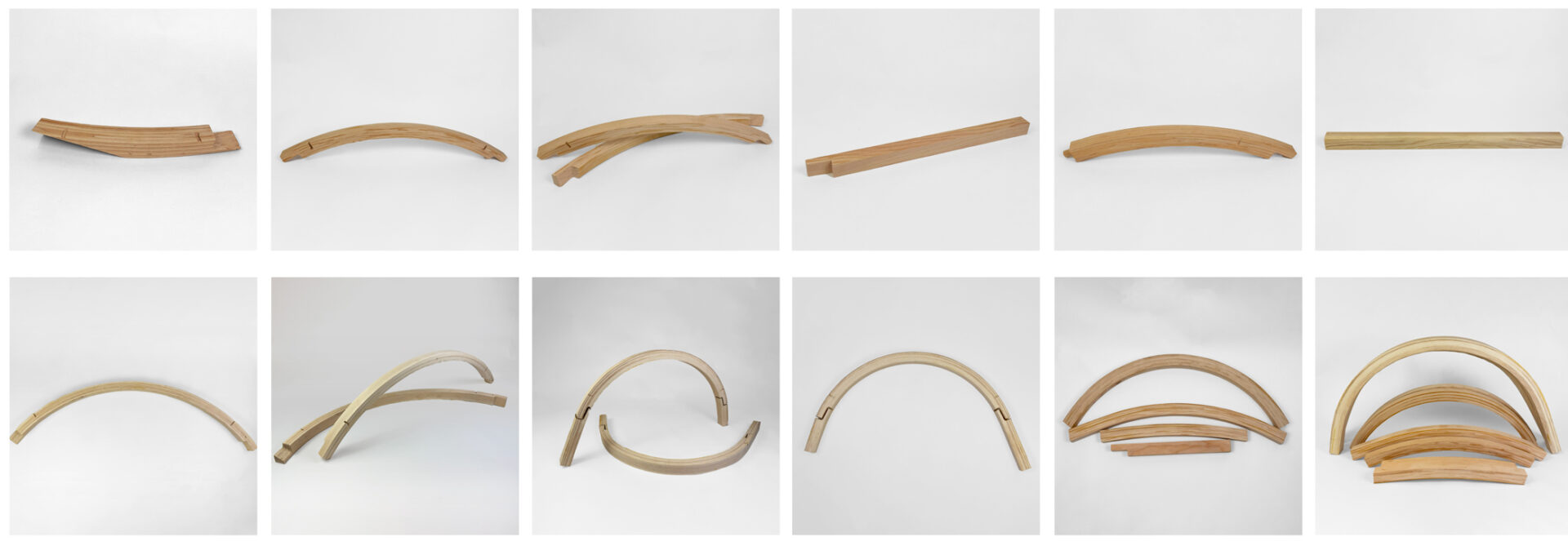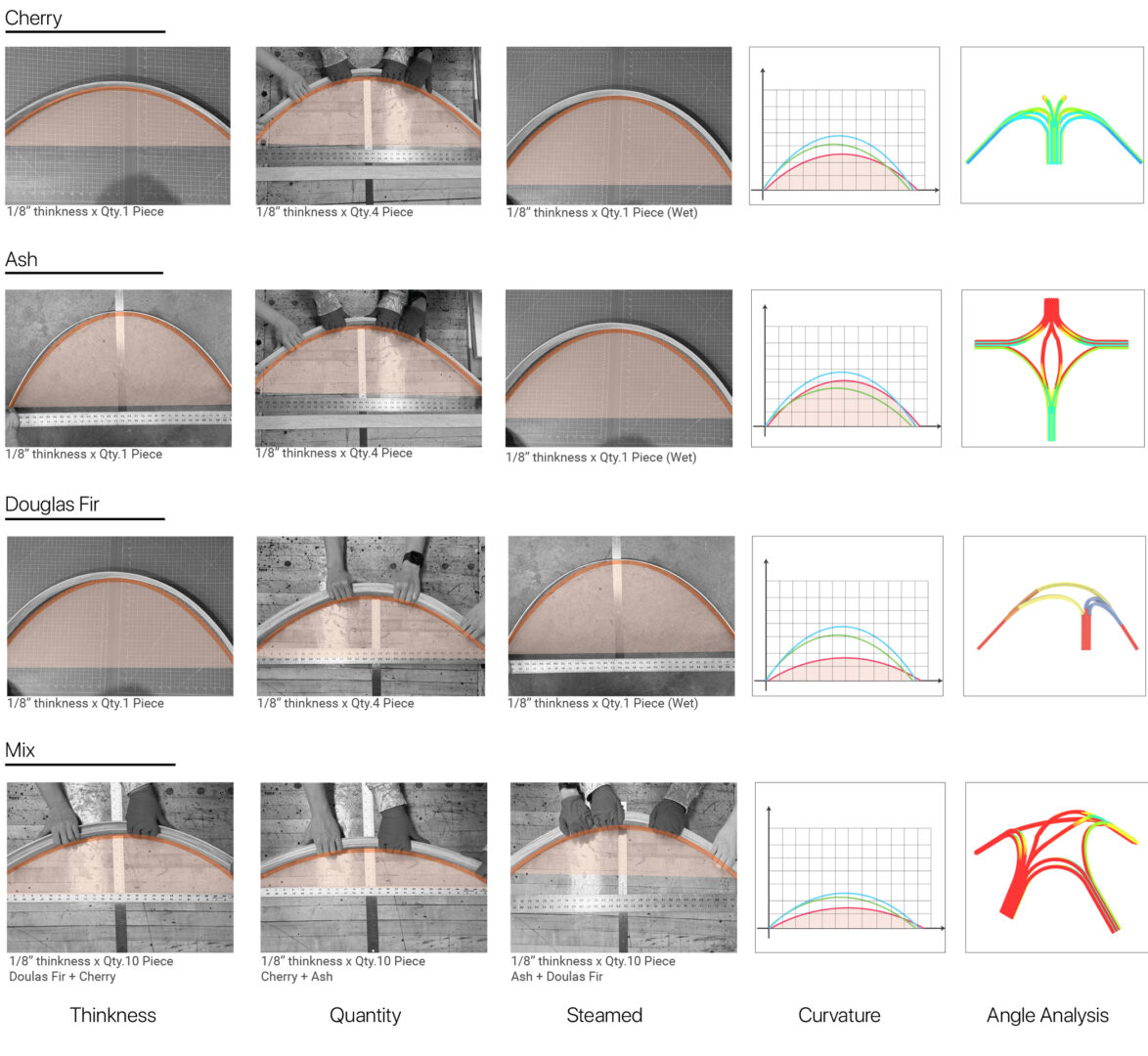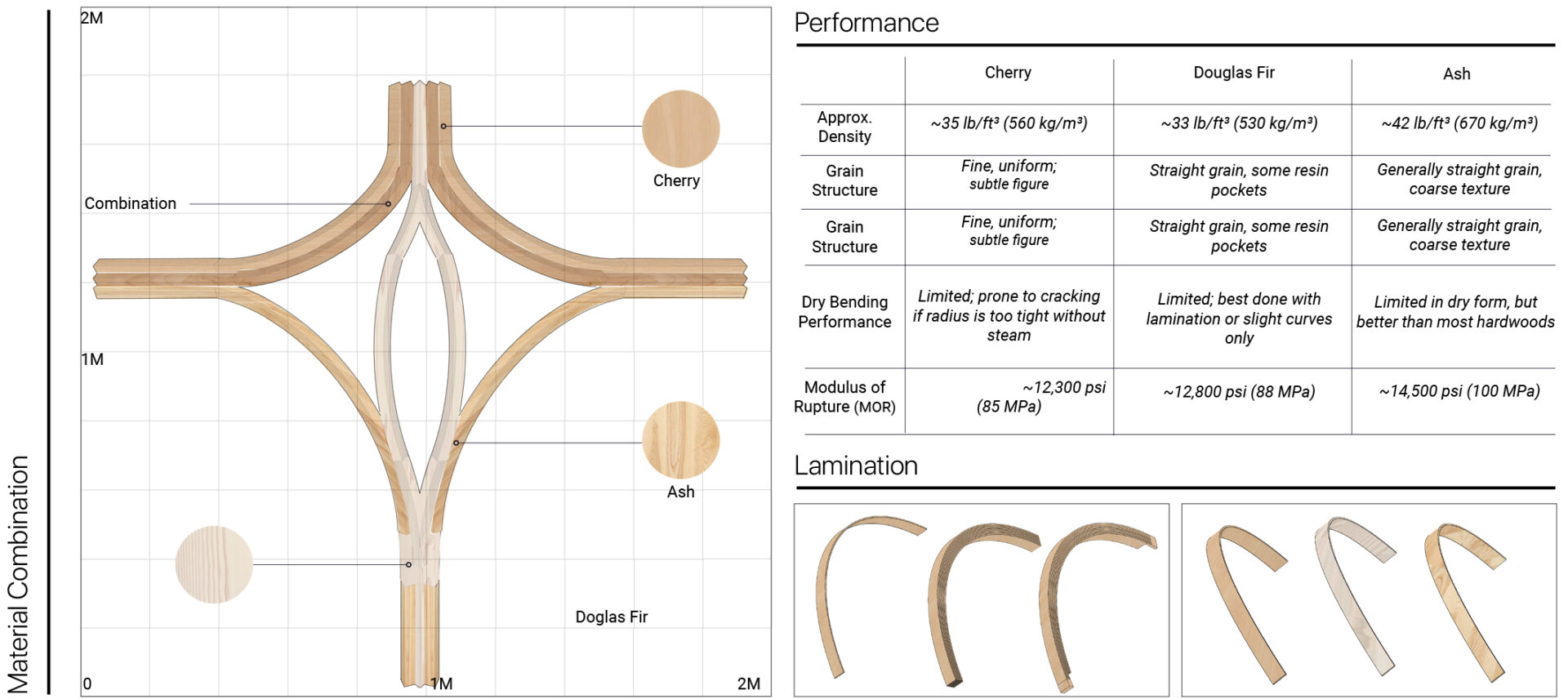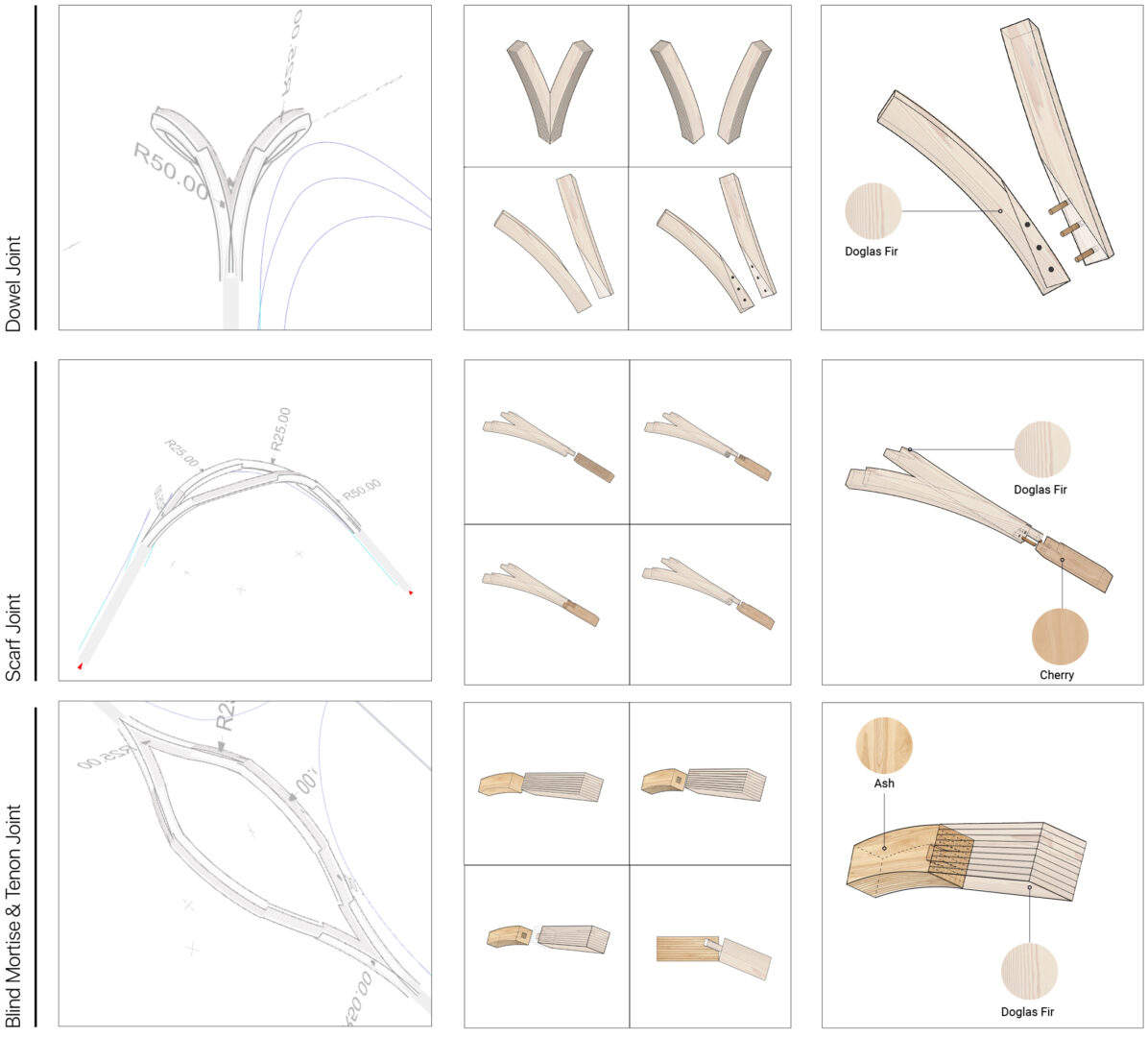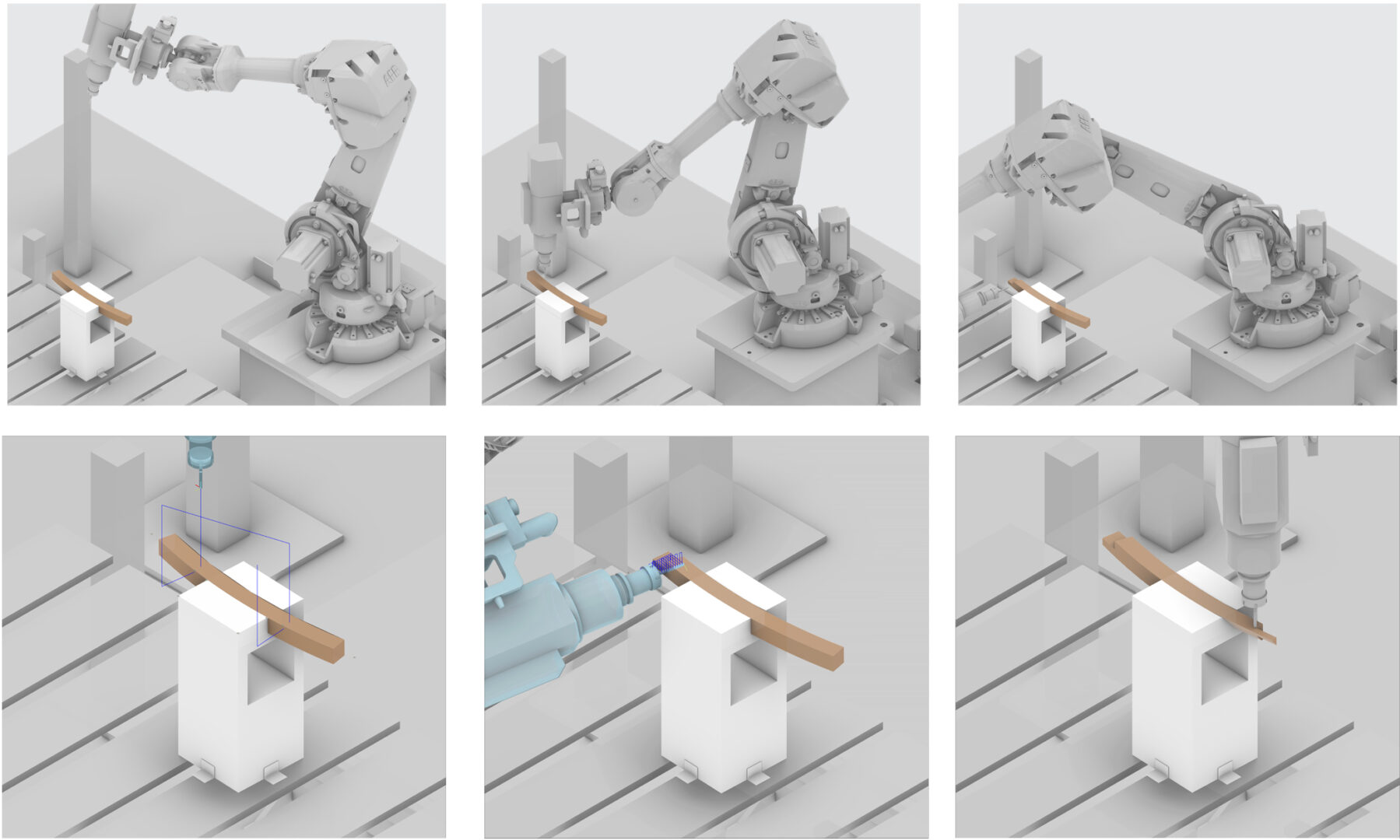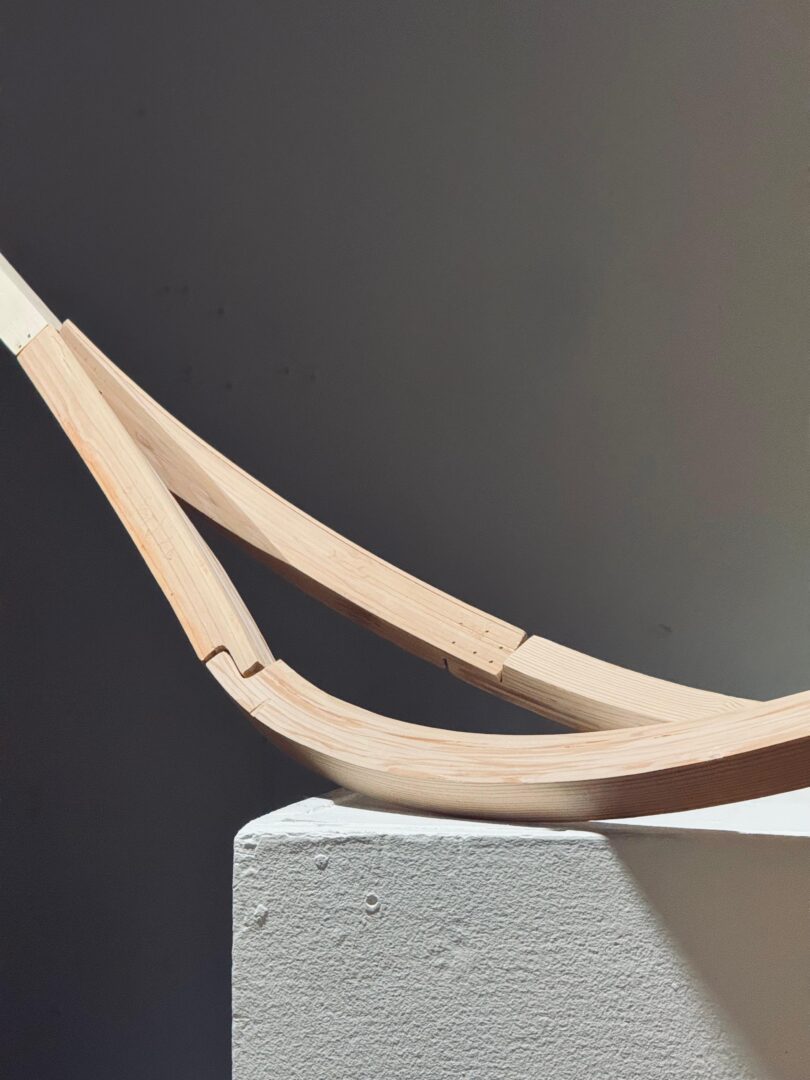Philadelphia, USA / Fall 2024
Team: Dengyu Zou, Congrui Gao, Jiaming Li, Siyao Zhang
Instructor: Alicia Nahmad Vazquez
Teaching Assistant: Mahsa Masalegoo
ARI Robotics Lab Manager: Nicholas Sideropoulos, Shunta Moriuchi
This project begins with a deep material inquiry, analyzing wood species, lamination techniques, and bending behaviors to inform an adaptive design strategy. Through digital simulations, topology optimization, and multi-target adaptation, we develop functionally graded laminations that respond to performance constraints and geometric complexity. The integration of robotic fabrication allows for high-resolution material customization, enabling the precise placement of varied wood densities and grain orientations within a single structure.
By synchronizing computational design with robotic workflows, this research advances the capabilities of timber construction, pushing beyond conventional mass production towards bespoke, performance-driven architectural solutions. The iterative process of design, material testing, and fabrication results in an optimized structure that embodies a synergy between natural material properties and digital precision.
Performance Evaluation
Composition and Connection
Informed Design and Fabrication
Starting from defined bounding curves, this workflow integrates form simulation, structural optimization, and multi-target adaptation to generate a structural form informed by timber properties. Synchronized with robotic fabrication, it enables a fully data-driven design-to-fabrication process.


